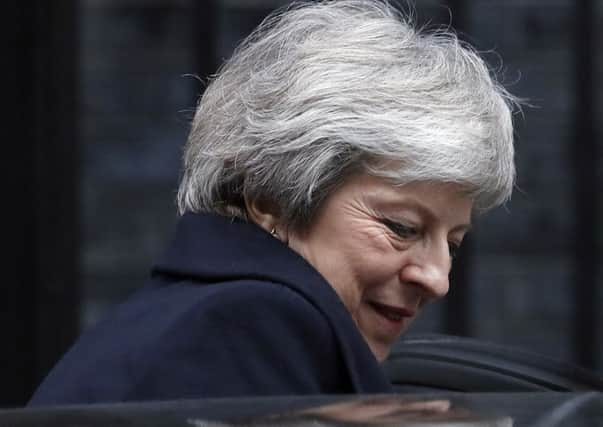William Wallace: Tories will have to spend to build a better Britain


That, she declared, is her preferred agenda, though pushed aside by the struggle over Brexit. She repeated these phrases when she stood outside 10 Downing Street to challenge her party to re-elect her.
She’s right. Britain’s deep social and economic inequities are the outcome of domestic failures, unconnected with EU membership. But any serious attempt to address them is likely to be opposed as vigorously by her right-wing as her plans for a soft Brexit.
Advertisement
Hide AdAdvertisement
Hide AdA major effort to revive Britain’s poorer towns and regions, to redress the visible injustices in our society, and to restore the quality of our public services, means raising and spending public money on a large scale.
And the Conservative Party is committed to shrinking state spending further. The Chancellor of the Exchequer spoke in the recent Budget of his hope of returning to tax cuts next year.
Readers of The Yorkshire Post will be familiar with the inequalities and injustices of which she spoke. The gap between Britain’s richest regions (London and the South East) and its poorest (including Yorkshire and the North East) is far wider than in any other European country.
The public spending cuts which the Conservatives continue to impose fall more heavily on the north of England than the prosperous South East, as a recent report from IPPR North has shown.
Advertisement
Hide AdAdvertisement
Hide AdAcross England’s poorer regions, central government support for local authority spending is disappearing, leaving councils to close children’s centres, dismiss social service staff, cut back on street cleaning and rubbish collection. State school funding has been frozen; further education colleges have seen their budgets squeezed further.
Mrs May promised to help “the left behind”. But these funding cuts, which on current government plans will cut deeper in the next two to three years, are leaving deprived communities even further behind.
Education and apprenticeships are key to providing their young people with opportunities to work; but the Government’s new apprenticeship scheme has led to a sharp decline in recruitment for apprenticeships.
Poor public transport across the north and other English regions means that it’s not easy for people there to travel to work at any distance. The coalition Government developed strategy to regenerate former industrial towns, but the Conservatives governing on their own have sold the Green Bank off to Australian private finance, and their Industrial Strategy is flimsy.
Advertisement
Hide AdAdvertisement
Hide AdThe Conservative Party is as deeply divided over taxation and public spending as over the EU. Moderate Conservatives recognise that the role of the state includes investment in education and welfare, research and development, roads, railways and other key public goods.
But the right-wing has been much influenced (and financially supported) by American Republicans, ‘libertarians’ who believe that governments should intervene and spend as little as possible. They believe as passionately in lower taxes as in hard Brexit. This is not just a Conservative failure, however. Successive governments over the past 40 years have ducked the question of how to reconcile the need to invest in education, provide welfare and health care for an ageing population, and provide public support for economic growth with popular resistance to paying higher taxes.
Margaret Thatcher used North Sea oil revenues and sales of state assets to subsidise public spending, in contrast to the long-term investment funds which the Norwegians built up from the financial windfalls of oil. Tony Blair increased public spending far more than taxation, with the result that the deficit was already five per cent of national income when the financial crash occurred in 2008.
Last year the UK raised a third of its national income in tax – more than the USA, but less than any other European country. Yet public spending is still four per cent of GDP higher. The Chancellor will have to cut much deeper to balance the books if he rules out tax increases.
Advertisement
Hide AdAdvertisement
Hide AdHigher taxation is almost a taboo subject in British politics. John McDonnell denies that a Labour government will raise taxes on any but the tiny minority of the rich; and The Guardian has complimented him on avoiding the ‘Tory trap’ of appearing to threaten tax increases. The hard reality, however, is that Britain cannot begin to tackle the problems that the Prime Minister says she cares about without spending a great deal more than we do.
Lord Wallace of Saltaire is a Lib Dem peer and a former Minister.